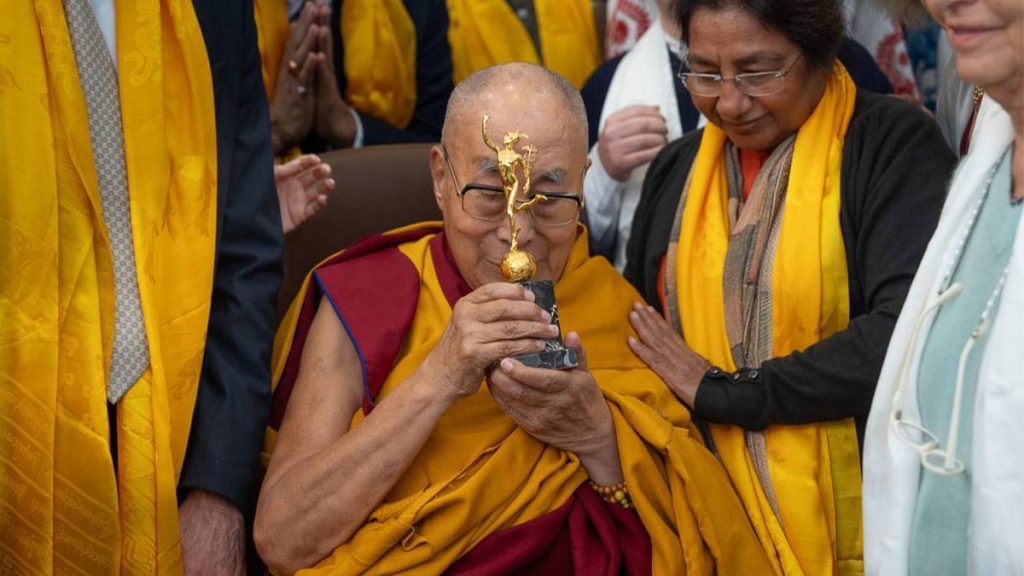Tibetan spiritual leader the Dalai Lama was presented with the prestigious Gold Mercury Award for Peace on Monday in recognition of his lifelong dedication to peace, compassion, education, and human rights. The award ceremony took place at his residence in Dharamsala, Himachal Pradesh.
The award was conferred by Nicolas De Santis, President and Secretary General of Gold Mercury International, who praised the Dalai Lama’s unwavering commitment to non-violence and sustainability.
“It is a profound honor to present to you the Gold Mercury Award for Peace and Sustainability 2025. Your wisdom, compassion, and dedication to peace have inspired the world,” Santis said.
He further highlighted how the Dalai Lama’s message of universal responsibility continues to shape global efforts toward harmony and sustainability.
“For decades, you have championed non-violence, human dignity, interfaith dialogue, and environmental stewardship, always reminding us that true peace begins within. Your message teaches us that we are all connected—not just as nations, but as one human family, sharing one fragile planet,” Santis added.
The Dalai Lama was also commended for his advocacy of Tibetan rights through peaceful means and his early warnings about climate change long before it became a global concern.
“Your Holiness, you have defended the rights of the Tibetan people through non-violent means, and you are also a global voice for sustainability, warning of the urgent need to protect our environment,” Santis noted.
The Gold Mercury Award recognizes visionary leaders who shape the future with courage and integrity. The Dalai Lama’s teachings, Santis said, will continue to inspire future generations toward a more peaceful and ethical world.
Meanwhile, China continues to label the Dalai Lama a “separatist” and insists it has the authority to select his successor. However, the 89-year-old spiritual leader has made it clear that any successor chosen by Beijing would not be recognized.
Human rights organizations and media sources report that China heavily suppresses Tibetan culture, religion, and freedoms through intense surveillance, forced assimilation, and crackdowns on opposition.
